Insiders
LUX* Maldives, A Lighter Brighter Green
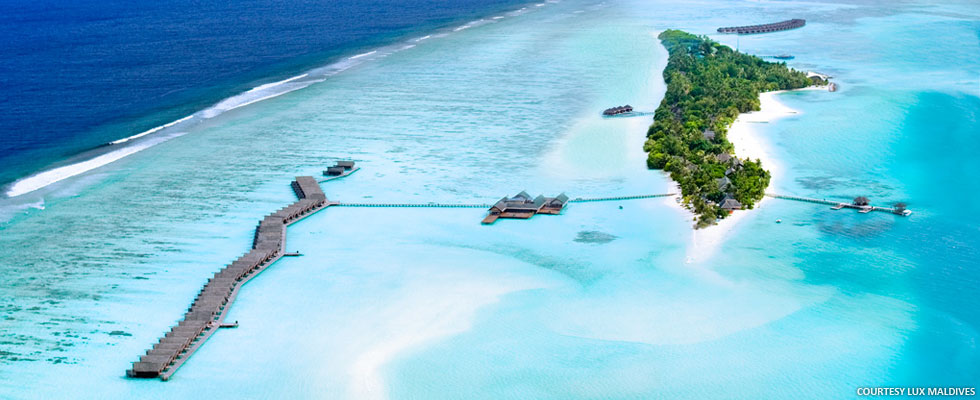
Maldives Promotion House – Islands are notoriously non-eco-friendly locations, with local eco systems, both terrestrial and marine, for too long threatened by the proliferation of holiday-makers, and the impact their presence has on fragile island environments.
LUX* Island Resorts is working hard to change this. Launched in December 2011, it is entirely carbon neutral through cooperation with award-winning carbon management specialists, Carbon Footprint Ltd. LUX* – named after the Latin for Light – is dedicated to achieving a lighter, brighter and altogether fresher version of the luxury island holiday.
Dedicated to the principles of responsible tourism, it is extending its participation in sustainable development and environmental management by implementing its ‘Tread Lightly’ initiative, aimed at a carbon-clean future. This aims both to offset 100%of carbon emissions from all its properties, and also to reduce carbon emissions by 20% by the end of 2012.
“It’s vital for businesses and organisations not ‘just to look at carbon offsetting’ as a ‘quick’ solution to environmental problems. The most responsible businesses carry out carbon management first and make a solid commitment before they consider any carbon offsetting.”He added: “LUX* Island Resorts have made a huge and responsible commitment to reduce and offset to net zero emissions to make their resorts carbon neutral,” the Managing Director of Carbon Footprint Ltd’s, John Buckley, explained.
LUX* allocates an amount from the price of each guest night it sells to the Tread Lightly Fund. This fund is used to enhance its green credentials by investing in a significant internal carbon-reduction strategy, focused on projects such as solar-power, LED lighting replacement, wind turbines and the recycling of grey water for cleaning of public spaces and irrigation. A Green Committee has also been appointed by the company, ensuring full coordination between the three LUX* destinations of Mauritius, the Maldives and Réunion.
This way, all of the resorts can learn and improve through the experiences of others. For example, some hotels are now operating sea-water desalination plants, and successfully recycling waste waters, plastics, paper, cardboard and cooking oil(for bio fuel). A planting scheme for trees and vegetation has also been initiated to compensate for unavoidable carbon emissions, along with programmes of constant care for beaches and the natural areas surrounding the properties.
LUX* Island Resorts is proud of its achievements in this area so far. In Mauritius, LUX* Belle Mare, LUX* Le Morne and LUX* Grand Gaube have each been awarded the Certificate of Good Environmental Practices by SGS in 2010. This certifies that the hotels have completed a complex evaluation process, including four environmental audits based on unannounced visits by experts. LUX* Maldives has opened a Marine Biology Centre on the island of Dhidhoofinolhu. Here, the company employs a full-time specialist marine biologist, equipped with office and laboratory, dedicated to researching the presence and conservation of whale sharks in the South Ari Atoll waters.
LUX* Ile de La Réunion works closely with La Reserve Naturelle Marine de La Réunion, an organisation which protects the lagoon and its wildlife through the education of guests on subjects such as respect of the corals and knowledge of endemic flora.
LUX* also recognises that small changes can ultimately make a big difference. To this end, it does not promote the import of bottled water. LUX* house water –still Earth and sparkling Dance – is locally sourced, natural and highly purified.
Its production also creates jobs for local people. LUX* knows that education is the key to ensuring the survival of Indian Ocean marine and island eco systems. It offers educational programmes on green issues not only to its staff, but also to neighbourhood schools, ensuring future generations are raised as responsible adults. It believes that through the shared efforts and contributions of the company, guests, employees and local communities, the world really will have a lighter, brighter future.
Action
Freediving with tiger sharks: Shark Expedition Fuvahmulah collaborates with marine biologist Andriana Fragola

Shark Expedition Fuvahmulah, renowned for its world-class scuba diving encounters, has announced an exciting expansion: the chance to freedive with tiger sharks in the Maldives’ southernmost atoll.
Fuvahmulah, often hailed as the “Tiger Shark Capital of the World,” is the only place on the planet where year-round encounters with tiger sharks are virtually guaranteed. With more than 280 identified resident tiger sharks, the island has become a bucket-list destination for divers and marine enthusiasts alike.
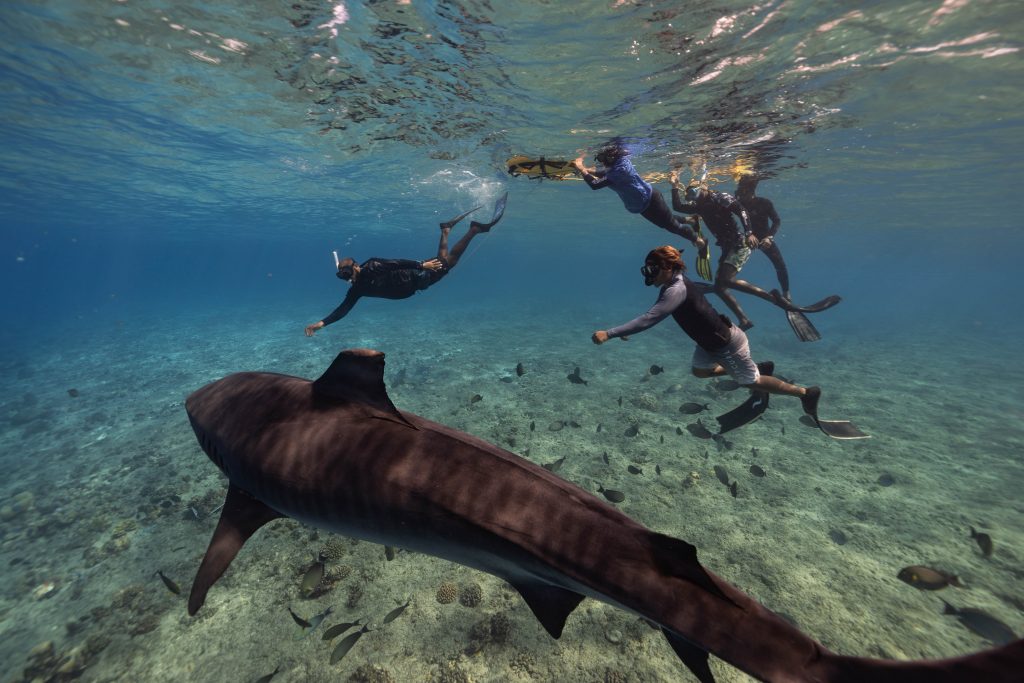
The newly introduced freediving experience offers a unique way to interact with these apex predators. Unlike scuba diving, freediving takes place without bubbles or heavy gear, allowing participants to connect with tiger sharks in a quieter, more natural way. This approach often makes the encounter more comfortable for the sharks and more intimate for the diver.
Guiding these expeditions is Andriana “Andy” Fragola, a marine biologist, shark diver, and conservationist currently based in Hawaii. Andy holds a Master’s Degree in Marine Conservation Biology with a focus on shark microbiology and has dedicated her career to shark research, conservation, and public education. Through her work in media and content creation, she strives to raise awareness about the importance of shark conservation and inspire people to take action to protect marine ecosystems.
“Freediving with tiger sharks is a raw and transformative experience,” says Andy. “Being eye-to-eye with these incredible animals without the barrier of scuba gear allows you to see them for what they truly are—powerful, intelligent, and essential to the health of our oceans.”
Shark Expedition Fuvahmulah ensures that all freediving activities are conducted under strict safety protocols. With experienced professionals like Andy leading the dives, participants can expect both an exhilarating and responsible adventure.
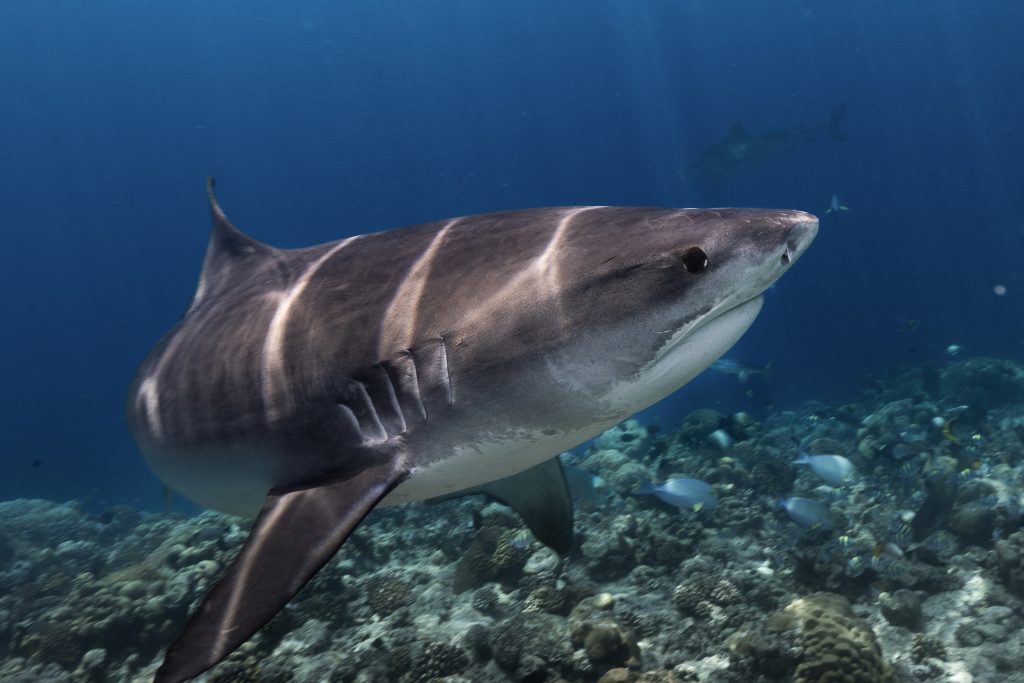
Why this experience stands out:
- Eye-to-eye encounters with tiger sharks in their natural habitat.
- A deeper, more personal connection with marine life.
- Expert-led guidance ensuring safety and conservation awareness.
In addition to freediving, Shark Expedition Fuvahmulah offers a range of packages, including accommodation options, making it easier for adventurers to fully immerse themselves in the island’s extraordinary marine environment.
For bookings and more information:
📧 Email: sales@scuba-expeditions.com
📱 WhatsApp: +960 9894653
🌐 www.scuba-expeditions.com
News
MIC appoints Ali Shakir as Group General Manager

Maldives Inflight Catering Pvt Ltd (MIC) has announced the appointment of Ali Shakir as the Group General Manager. With over 27 years of experience in the hospitality industry, Ali Shakir will now oversee operations for the Maldives Inflight Kitchen, Hulhule Island Hotel, and Madifushi Private Island Maldives.
Ali Shakir, who most recently served as General Manager at OBLU NATURE Helengeli by SENTIDO, played a pivotal role in the resort’s redevelopment and reopening. Prior to that, he joined Atmosphere Core in 2019 as Resort Manager at VARU By Atmosphere, where he was instrumental in the pre-opening of several properties, including OBLU XPERIENCE Ailafushi, OBLU SELECT Lobigili, OZEN RESERVE BOLIFUSHI, and VARU By Atmosphere. His wealth of experience also includes key positions at prestigious resorts such as Angsana Velavaru, Hulhule Island Hotel, and Paradise Island Resort and Spa.
Ali is no stranger to MIC, having spent more than 15 years at Hulhule Island Hotel, where he rose through the ranks to become Executive Assistant Manager before departing in 2019.
Commenting on his new role, Ali Shakir expressed his enthusiasm:
“I am honored to rejoin MIC and lead the operations of these iconic properties. This company has always held a special place in my career, and I am excited to work with the talented team to drive further success and innovation.”
Ibrahim Shareef Mohamed, Managing Director of MIC, welcomed Ali to the leadership team, praising his extensive experience and strategic vision:
“We are delighted to have Ali back at MIC. His proven track record in the hospitality sector, combined with his in-depth knowledge of Hulhule Island Hotel and his previous achievements, makes him the ideal leader to take us forward. I have no doubt that under his leadership, MIC will continue to set benchmarks for excellence.”
Ali Shakir holds a General Managers Program certificate from Cornell University, USA, and a General Hotel Service certification from the Institute of Hotel and Catering Service, Maldives.
MIC is a joint venture between Maldives Airports Company Limited and SATS Ltd, renowned for its inflight catering services to airlines and private jets. Beyond the Maldives Inflight Kitchen, MIC also manages Hulhule Island Hotel, the only airport hotel at Velana International Airport, and the luxurious Madifushi Private Island Maldives in Meemu Atoll.
Tips & Advice
Flying after scuba diving: Essential guidelines for safe travel

Scuba diving in the Maldives offers an unparalleled experience, with its vibrant coral reefs, diverse marine life, and crystal-clear waters. However, one crucial aspect that divers must consider is the timing of their flights after diving. Understanding the recommended waiting periods before flying is essential to ensure safety and prevent decompression sickness. Here’s what you need to know.
Understanding Decompression Sickness
Decompression sickness, also known as “the bends,” occurs when nitrogen bubbles form in the bloodstream and tissues due to rapid changes in pressure. This can happen if a diver ascends too quickly or flies too soon after diving. The reduced cabin pressure in an airplane can exacerbate the formation of these bubbles, leading to serious health risks.

Recommended Waiting Times
The waiting time before flying after scuba diving depends on the type and number of dives completed. Here are the general guidelines:
- Single Dive: If you have completed a single, no-decompression dive, it is recommended to wait at least 12 hours before flying. This allows sufficient time for the body to eliminate excess nitrogen.
- Multiple Dives or Multiple Days of Diving: For divers who have completed multiple dives or have been diving over several days, the recommended waiting period extends to 18 to 24 hours. This longer duration helps ensure that nitrogen levels in the body have decreased to safe levels.
- Dives Requiring Decompression Stops: If your dive profile included decompression stops, it is crucial to wait at least 24 to 48 hours before boarding a flight. Decompression dives involve higher nitrogen absorption, necessitating a longer off-gassing period.
Seaplane and Domestic Flights
Many tourists visiting resorts and other islands in the Maldives travel by seaplane or domestic flights. While these flights generally operate at lower altitudes compared to international flights, the same waiting time guidelines apply. The reason is that even at lower altitudes, the risk of decompression sickness remains significant due to the changes in pressure.
Practical Tips for Divers
- Plan Your Dives and Flights: When planning your diving trip, consider your flight schedule. Ensure that you have ample time between your last dive and your flight to adhere to the recommended waiting periods.
- Stay Hydrated: Proper hydration can aid in the elimination of nitrogen from the body. Drink plenty of water before and after your dives.
- Monitor Your Health: Pay attention to any symptoms of decompression sickness, such as joint pain, dizziness, or difficulty breathing. If you experience any of these symptoms, seek medical attention immediately.
- Use Dive Computers: Modern dive computers can help track your nitrogen levels and provide personalized recommendations for safe flying times based on your dive profile.
Flying after scuba diving requires careful consideration and adherence to safety guidelines to prevent decompression sickness. By following the recommended waiting times and taking necessary precautions, divers can enjoy their underwater adventures in the Maldives and travel safely. Always consult with dive professionals or medical experts if you have any concerns about your health and safety.
-
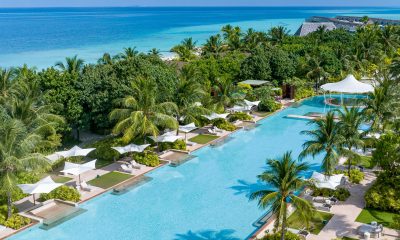
 Culture1 week ago
Culture1 week agoKuda Villingili presents family-focused Eid al-Fitr experience in Maldives
-
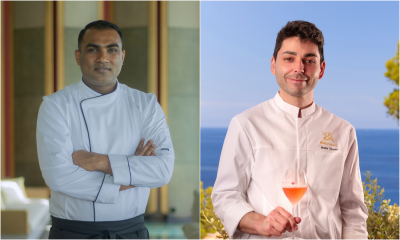
 Cooking1 week ago
Cooking1 week agoMichelin-starred Chef Jaume collaborates with One&Only Reethi Rah’s TAPASAKE for four-hands dinner
-
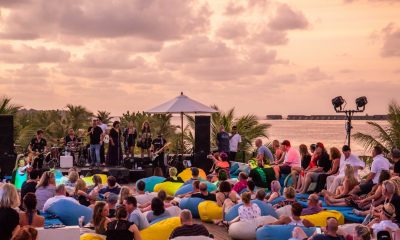
 Entertainment1 week ago
Entertainment1 week agoStrong demand sees Kandooma Maldives 2026 concert series selling out early
-
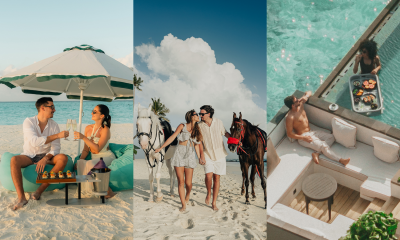
 Featured1 week ago
Featured1 week agoSun Siyam Resorts marks Valentine’s season with multi-resort celebrations
-
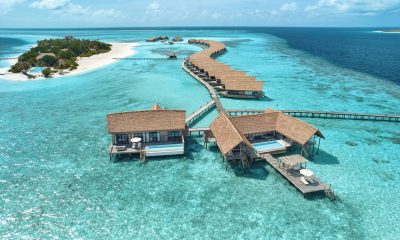
 Love1 week ago
Love1 week agoCOMO Cocoa Island, COMO Maalifushi unveil Lunar New Year, Valentine’s Day celebrations
-
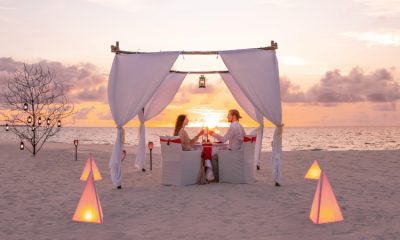
 Featured6 days ago
Featured6 days agoCoco Bodu Hithi and Coco Palm Dhuni Kolhu curate distinct Valentine’s escapes
-
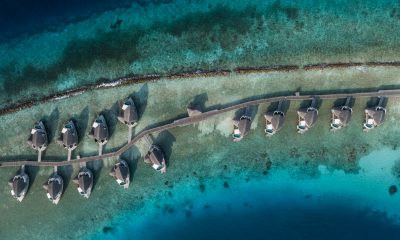
 News5 days ago
News5 days agoJW Marriott Maldives Resort & Spa invites families to celebrate Eid Al-Fitr in island luxury
-
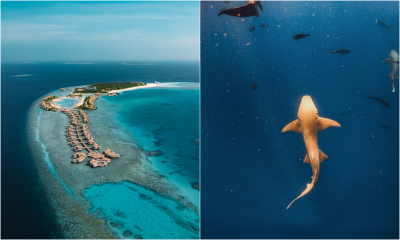
 Action5 days ago
Action5 days agoInterContinental Maldives Maamunagau Resort launches ‘Swim with Nurse Sharks’ experience
















